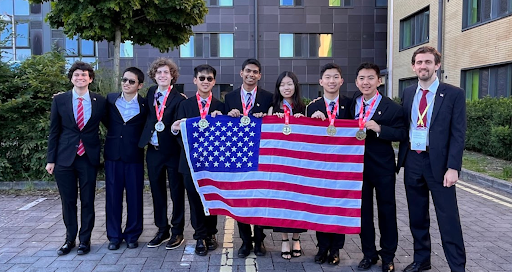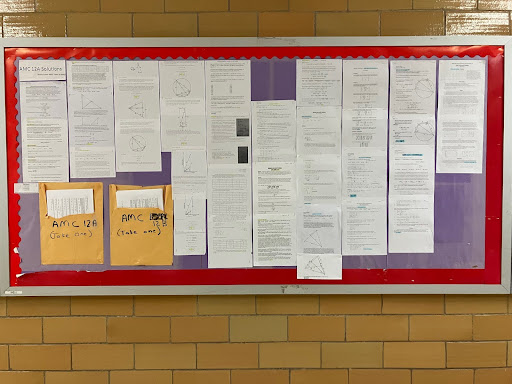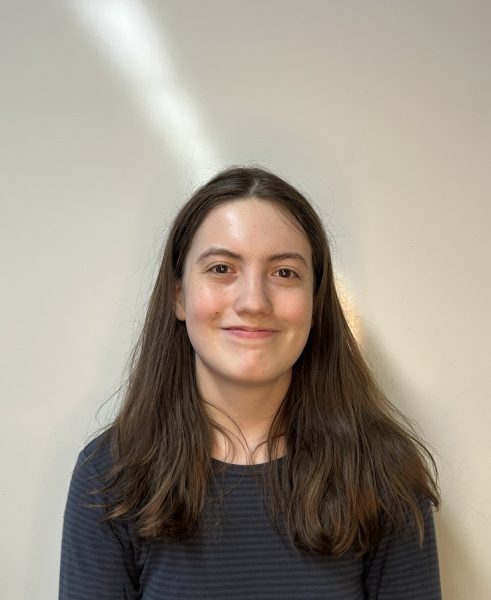In November of last year, members of Brooklyn Technical High School’s competitive math community were left in a state of confusion after news broke that an anonymous hacker had leaked a copy of the American Mathematics Competition (AMC) 12A, a prestigious mathematics exam taken by high school juniors and seniors.
The leak, which swiftly spread across platforms like Discord and Reddit just days before the exam’s scheduled administration, was originally posted as a “mock test” on The Art of Problem Solving, a widely used math website. While the Mathematical Association of America (MAA) quickly identified and removed the exam from the website, hundreds of users had already seen and saved it.
The AMC is the first stepping stone for students aiming to qualify for the prestigious International Mathematical Olympiad (IMO). Over 300,000 students sit for the test each year. Those with high scores are invited to the American Invitational Mathematics Examination, and students who record exceptional results on both tests may be selected to represent the United States in the IMO.

However, for most students, the competition’s purpose is to measure one’s mathematical achievement, and the AMC has previously served as a metric for college admissions. According to Dr. Thomas Blozy, a Calculus teacher and administrator of the AMC, schools including MIT and Carnegie Mellon have been rumored to take scores into consideration in the past. This consideration brought further attention to the exam, and, according to Blozy, motivated many students to search for ways to cheat.
Questions for the AMC are prepared years in advance, so with no time to start over, the MAA issued a statement confirming that the test would continue as planned, stating that they would look for unreasonable jumps in student achievement to locate those who had cheated.
Although the exam leaks were quickly located and removed, there was no way to effectively cull the number of students who had seen it. Unlike Stuyvesant High School, which chose to forgo the AMC 12A entirely in response to the leak, Tech did not cancel the test.
Many students, parents, and teachers believed that the MAA had a lackluster response to the exam leaks.
One resounding public call was for accountability from the MAA. Petitions, posted on websites such as Change.org, amassed thousands of signatures from students, teachers, and parents. One petition, with over 4,500 signatures, expressed a simple goal: for the MAA to “uphold the integrity” of their competitions
Tech students voiced mixed reactions to the AMC 12A leak, which was still circulating on platforms like TikTok just days before the test. Abdur Labik (‘26), a Math Team member and Mathematics major, explained that he “thought it was leaked a day before the test, and in the classroom I didn’t really see anything, but online there was definitely a lot of drama going on.”
For students with easy access to leaked questions, an ethical conflict loomed large.
“Can you really be sure that you’re doing the right thing just because you want a better score?” Labik questioned, adding that the AMC leak cast doubt on the integrity of the exam.
As a high stakes gateway to future opportunities the leak left students feeling the need for greater test security. As students prepared to take this year’s AMC on November 6, the future of the test remained a focus of debate..
Some question the timing of the exam’s distribution, wondering if exams that were sent far prior to the administration were more likely to be leaked.
“[We] had access to [the exam] four or five days before the contest,” explained Blozy.
In contrast, questions for the U.S. Math Olympiad are released only five minutes before its administration. Students, including Ethan Lu (‘26), a member of the math team, felt that the AMC should mirror the math olympiad in this regard.
Additionally, to confo
rm with standards recently set by the College Board, some have proposed a universal digital exam, which may resolve the issue of differing distribution times. According to Blozy, a digital exam is available, but Tech never had the resources to offer it. He also questioned the merit of completing the test on computer.
“[Students] will treat it as more of a multiple choice and they don’t treat it as a math problem,” Blozy contended. ”You can’t do these problems in your head.”
As Tech students took the AMC on November 6th, last year’s leaks seemed inconsequential. The exam was administered on paper, and over 300 Tech students participated. However, with the digitalization of the AP exams, the Amc is likely to change in the near future as well.








































